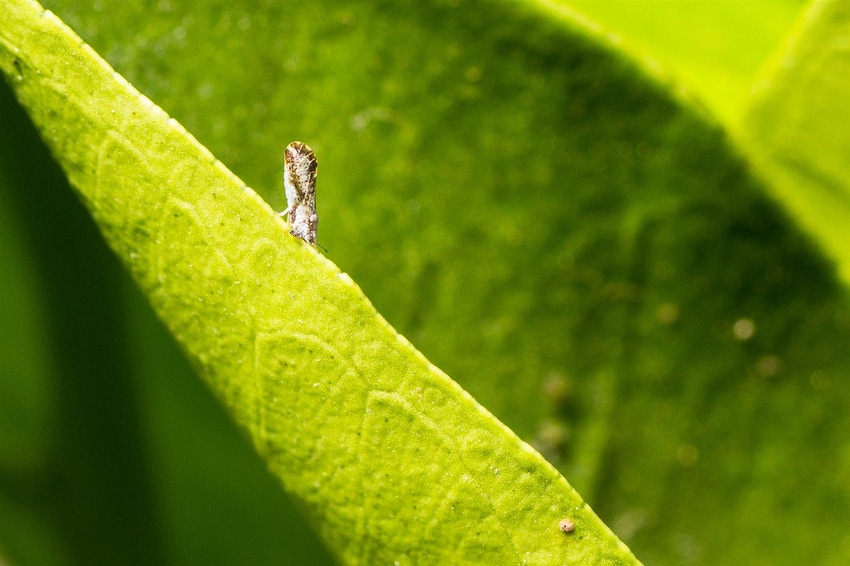December 11, 2017

Researchers are closer to a pheromone trap for the Asian citrus psyllid (ACP) pest.
The finding was announced recently in Brazil by Dr. Walter Leal, a chemical ecologist with the University of California. Leal led a team of scientists from UC Davis, University of Sao Paulo, and the Fund for Citrus Protection (FUNDECITRUS) from the state of Sao Paulo.
The ACP can vector the deadly bacterial disease Huanglongbing which infects citrus trees and there is no cure. The disease has been found around the world and has decimated citrus groves in Florida. The disease has been found about 250 times in California in residential citrus but so far not in commercial citrus.
“Dr. Leal’s discovery of the Asian citrus psyllid pheromone is a significant breakthrough in preventing the spread of this serious citrus insect, and may offer a less toxic method for its control,” said University of California integrated pest management specialist Frank Zalom. He is the past president of the Entomological Society of America and was not involved in the study.
Identifying the sex pheromone proved “complicated and quite a challenge” due to the insect’s complex behavior and biology, said Leal, a UC Davis distinguished professor who has discovered the sex pheromones of moths, beetles, bugs, cockroaches, mites and other arthropods.
A patent was filed Dec. 1, and journal publication is pending.
California officials currently use a yellow card with adhesive. The color is believed to attract the ACP and other insects. However, it's been called a 'blunder trap' by some officials that may offer no significant attractant to the ACP, and at certain times of the year may not attract psyllids.
“Having a lure to dramatically improve captures of this psyllid with the conventional sticky traps is a major progress toward integrated pest management,” said professor Jose Robert Parra of the University of Sao Paulo.
About the Author(s)
You May Also Like






